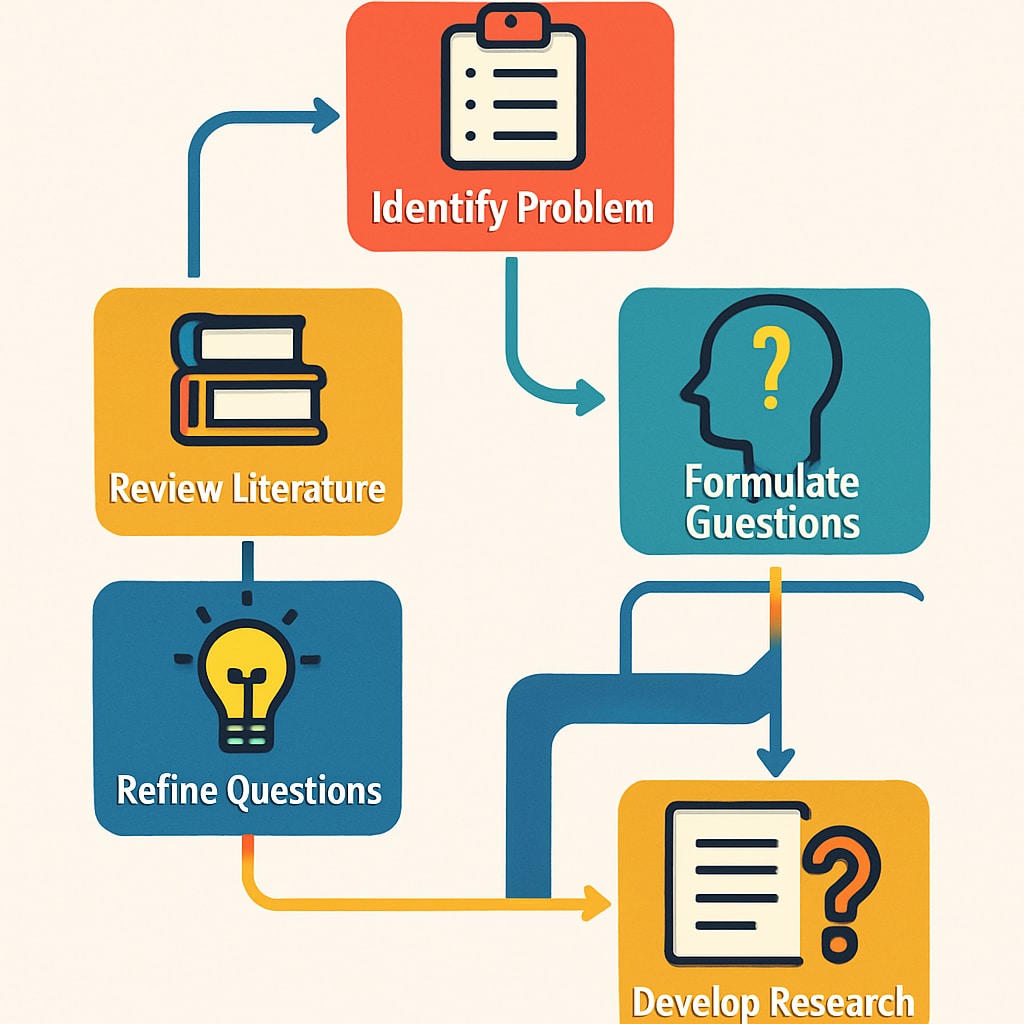“Research question formulation” represents the cornerstone of meaningful educational research. For K12 teachers, developing precise inquiry questions helps transform daily classroom challenges into systematic investigations. According to the British Educational Research Association, well-structured questions directly influence study design and outcomes.
The Importance of Focused Inquiry in Education
Effective problem identification begins with recognizing persistent classroom issues. For example, a math teacher might notice consistent difficulties with fraction concepts. This observation becomes the foundation for study design.

5-Step Framework for Developing Research Questions
Follow this systematic approach to create impactful study inquiries:
- Identify persistent challenges: Document recurring teaching obstacles
- Review existing literature: Check ERIC database for prior studies
- Narrow the scope: Focus on specific, measurable aspects
- Ensure feasibility – Consider time and resource constraints
- Test for clarity: Can colleagues understand your question?

Common Pitfalls in Research Question Development
Many educators make these mistakes when formulating study inquiries:
- Creating questions too broad for classroom implementation
- Developing inquiries that cannot be measured objectively
- Ignoring available research evidence during question formation
Readability guidance: Use short paragraphs with clear transitions; maintain active voice; limit technical jargon with explanations when needed; include practical examples from classroom contexts.


